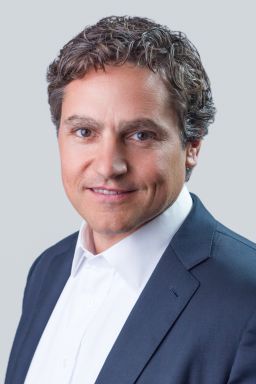Editor’s Note: Jonathan Soros is chief executive officer of JS Capital Management LLC, a private investment firm. He is also a senior fellow at the Roosevelt Institute, a think tank based in New York, and co-founder of Friends of Democracy, a super PAC and advocacy organization dedicated to reducing the influence of money in politics. The opinions expressed in this commentary are those of the author.
Story highlights
Jonathan Soros, a political donor, says the financing of campaigns corrupts democracy
He says recent elections in Maine and Seattle raise hope for public financing of campaigns
Last Monday, I hosted a dinner with President Obama for 50 people to raise money for the House Democrats. As host, I enjoyed the additional privilege of a few minutes in private with the President during which I pressed him, ironically, to take action on campaign finance reform. Sorry, but I can’t tell you how he replied. Part of the privilege is to hear the President off-the-record.
Later in the week I hosted a smaller dinner for a candidate for the U.S. Senate. Our common passion for campaign finance reform is such I could convince myself he was just there to anchor our thoughtful discussion, but there’s only one reason New York is an essential campaign stop for candidates from all 50 states: money.

The relentless demand for campaign funds grants those of us who provide the money extraordinary access to our elected leaders and candidates. We can shape how candidates talk about an issue, influence what issues they might choose to highlight or ignore, and entice promises about what they will do in office.
While I, and many other private donors on both the left and right, advocate for policies that we perceive to be in the public interest, our perspective is dramatically unrepresentative of the American electorate. Top political donors are overwhelmingly male, white, urban, and, of course, rich.
More importantly, many other donors have only their self-interest in mind and give to curry favor with the lawmakers who can help or hurt their fortunes. Most members of Congress, who are dependent on this money for their re-election campaigns, have to listen.
The American public understands this is a fundamental corruption of our political process. And while I have worked to bend that process toward inclusion and transparency from the inside, voters have started to take matters into their own hands.
In Maine and Seattle, meaningful bipartisan majorities voted last Tuesday to make the voters themselves, rather than an elite or self-interested few, the source of campaign funds. By a 55% to 45% vote, Maine voters renovated their landmark “clean elections” law that provides substantial campaign funds to candidates who raise a large number of small contributions, allowing ordinary citizens the opportunity to contest and win elections with the support of their peers.
An earlier law for public funding of campaigns had been badly undermined by the U.S. Supreme Court and constant raids of its funding. But having once enjoyed the opportunity to elect candidates that came from and represented their communities, Mainers reclaimed that right with their dramatic victory.
Voters in Seattle passed an “honest elections” law that includes an innovation called “Democracy Vouchers.” Once implemented, every voter in Seattle will receive $100 in vouchers that can be used to support candidates for city office who voluntarily accept spending and contributions limits. Because the vouchers will be sent automatically based on registration status, the new program has the opportunity to dramatically expand access to and participation in election financing. Despite attacks from local real estate interests that stand to lose much of the influence they have exerted over city government, the proposal passed by an unexpectedly strong margin of 63% to 37%.
Though different in design and name, these new laws have in common the capacity to fundamentally upend the way campaigns are financed and diminish the influence of big donors and super PACs. Neither law eliminates super PACs, but it’s easy to see how they become far less relevant (and perhaps even counterproductive) when candidates can fund their campaigns by appeal directly to their constituents.
Maine and Seattle are only the beginning. Plans are already afoot to extend these victories to other states and municipalities and, by demonstrating the clear will of the American people to have representatives who work for them and not special interests, eventually to Congress.
Over the past few months, I’ve joked with people who know of my involvement with this work that the movement to reform campaign finance laws was making tremendous progress “despite all objective evidence to the contrary.” While there is still a long way to go, the progress is now manifest and the path clearer than ever.
The American people want their democracy back, and they’re going to get it.
Join us on Facebook.com/CNNOpinion.
Read CNNOpinion’s Flipboard magazine.
